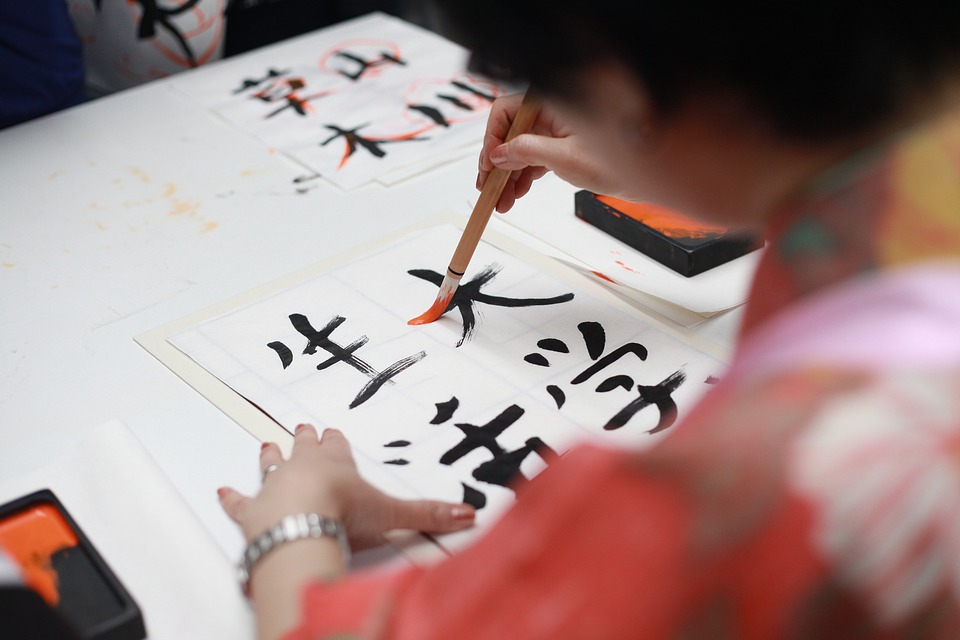Blog
2019.07.15
Japanese language
Five Special Features of the Japanese Language
As our previous article about the special features of the English language has received a lot of attention especially from overseas, we decided to write an article focusing on the special features of the Japanese language as well.
The Japanese language is quite different from European languages in terms of grammar, vocabulary, and characters used for writing. That is why learning Japanese is more difficult than e.g. learning English for someone with a European mother tongue.
Japanese uses 3 different Writing Systems

Japanese uses three different writing systems: Hiragana, Katakana, and Kanji. The first two of them are syllable alphabets consisting of 46 characters each. Kanji are characters borrowed from China. About 2.000 of them are commonly used in everyday life but some dictionaries list over 50.000 different characters. Learning all these characters is probably one of the most difficult aspects for Japanese learners. As nowadays most Japanese is written with a computer or smartphone you are basically alright as long as you can recognize the characters. It is not necessarily required to remember how to write them.
Japanese has a fairly Easy Grammar

On the other hand, Japanese grammar is quite easy. There are no cases or plural forms, there only is a present and a past tense and adjectives and nouns do not change. Nevertheless, as an e.g. German or English native speaker, you will have to learn a completely new grammar which is another aspect that makes it difficult to learn Japanese. An interesting aspect of Japanese Grammar is that the verb is usually the last word in a sentence. Also, Japanese is considered as a left-branching language, where modifiers generally precede heads (e.g. “who standing at the station, the man”). Languages like English or German are right-branching with the important information coming first and modifiers later. There are studies showing depending on whether your mother tongue is left- or right-branching the way your brain processes information is different. (More information here)
Japanese has a very complex polite Language
As in Japan, the relationship of the speakers to each other has a lot of influence on the language there are several different terms to express “I” and “You” as well as different verbs for the same meaning that you vary according to how politely you want to address the other party. For example, there is the standard verb for eat “食べる (taberu)”. But in a situation when you want to address the other party politely you would say “召し上がる (meshiagaru)” and in a situation where you talk about yourself in a polite way you would say “頂く (itadaku)”. Getting used to the correct usage of these polite forms is not easy but luckily as a foreigner, you are not expected to be perfect and mistakes are forgiven easily.
Japanese has certain Phrases you will not find in other languages
Japanese also comes with some interesting words and phrases that you will not find in other languages. These are usually hard to translate. For example, when a colleague leaves the office other colleagues will say “お疲れ様です。(Otsukaresama desu)” which basically means something like “Thank you for your hard work.” Whereas in English you would say “Have a nice evening/weekend” putting the focus on your colleague enjoying the upcoming free time. In Japanese, the focus is on the work they have done. Also, the colleague leaving will usually say “お先に失礼します (Osaki ni shitsurei shimasu)” which means “I am sorry for leaving early”. Just by looking at these terms you can see what importance work and the company you work for have in Japanese culture. However nowadays these phrases are merely used as greeting phrases and there is no real deep meaning to them.
Japanese do not always mean what they say
Japanese people tend to avoid a clear no. When you are in a business meeting with a Japanese business partner they might say “検討させていただきます。(Kentou sasete itadakimasu)”, which literally translates to “I will think about it”. In most cases, this is just a polite way of declining your offer. If you are not aware of this cultural background you might get the wrong impression of the outcome of the meeting. However, I guess a lot of people have also experienced that someone said “We will get back to you” after e.g. a job interview and in the end never heard of them again. So, this might not be a Japan exclusive phenomenon.
We hope you found this short introduction to the special features of Japanese interesting. Is there any aspect of the Japanese language you are interested in? Let us know and we will pick it up in future articles.
Similar Posts
[jetpack-related-posts]



Leave a Reply